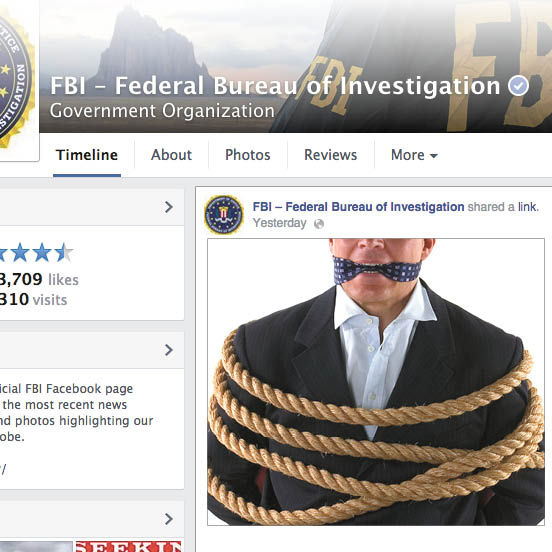Supreme Court weighs free speech, threats online

The U.S. Supreme Court will soon decide whether the First Amendment protects threatening or violent posts in the case of Anthony Elonis. He is currently serving prison time due to various comments that he made online, specifially on social media toward his estranged wife, an FBI agent and a kindergarten class.
December 10, 2014
Facebook and Twitter news feeds are often clogged with opinions written in a bout of rage from old high school acquaintances or distant family members. However, those posts of outrage may not fall under free speech laws depending on the language used in messages.
The U.S. Supreme Court is set to decide whether rants posted on social media such as Facebook can be considered threats or if they are protected by free speech.
The case stems from a Pennsylvania man, currently serving a 44-month sentence in prison, who posted statements on his Facebook page directed at his estranged wife, FBI agents and a kindergarten class.
The comments made by Anthony Elonis were violent and included death threats directed at his wife. Even after a court issued an order to keep Elonis away from his wife, he threatened her again and went on to threaten a kindergarten class, which earned him a visit from the FBI. Following the visit from a female FBI agent, Elonis went on to threaten her as well.
Elonis claims his postings, which were written in the form of rap lyrics, were a way to vent his frustration, first at his wife and later at the FBI agent who questioned him.
“The first amendment issue has to do with the fact he’s tying to tie it to creative speech — rap lyrics — and saying that makes it protected under the first amendment,” said Dirk Deam, senior lecturer in political science.
Deam said the fact it is online really does not matter in this case. It is more about the way he presented the speech.
“In most respects, it’s not the medium [of spoken word or online] that controls, it’s the character of the speech,” Deam said about whether the form of speech is relevant to the case or not.
For ISU students who use multiple forms of social media, Captain Carrie Jacobs, patrol commander for the ISU Police Department, has some advice.
Jacobs said the ISU PD receives reports a couple times a week about threats and harassment online. She said they frequently receive these types of reports from a third party.
“The majority of our online reports usually come from other students, faculty and staff members, not necessarily the victim themselves,” Jacobs said. “A lot of it is ‘hey. FYI, I saw this on Facebook or Snapchat,’ and they think it’s usually nothing, but just want to be sure about it.”
Anyone who harasses or threatens someone online can be charged with a misdemeanor or felony, Jacobs said.
“It really depends on what type of threat it is,” Jacobs said.”It can go all the way from a simple misdemeanor up to a felony level threat.”
Under Iowa law, police must prove intent to “annoy, scare or alarm” an individual in order to charge them. Jacobs said the ISU police likes to talk with the person making a threat, determine what his or her intent was, and then they determine the level of criminal charges they will use for harassment or threats.
In the case of the Supreme Court, justices were asking questions, but seemed inclined to rule against Elonis’ argument that his posts were just rap lyrics he wrote to vent.
Chief Justice John Roberts said Elonis’ comments could be defended in that it was presented as a form of art.
“What about the budding rapper who’s writing his first rap song?” Roberts said at oral arguments Dec. 1.
Justice Sonya Sotomayor said the court was “loathe” to create more exceptions to the First Amendment, but Justice Samuel Alito responded to Roberts’ rap question.
“This sounds like a road map for threatening a spouse and getting away with it. So you put it in a rhyme and you say I’m an aspiring rap artist and so, then you are free from prosecution,” Alito said.
Deam said it is likely the court will not rule in favor of Elonis.
“The court, which is generally quite tolerant of this kind of argument, will not be tolerant [of this specific] argument,” Deam said. “This looks like someone is just throwing up an excuse. It will be hard for them to find this as protected speech.”
Jacobs gave advice to anyone who is thinking about posting something threatening online.
“My final words of wisdom would be, if you wouldn’t show it to someone you respect, like your grandparents or mentor, don’t post it on Snapchat; don’t post it on Facebook or Twitter; don’t post it anywhere that’s considered a public forum,” Jacobs said. “Once it’s on the Internet, it’s there for life.”
















